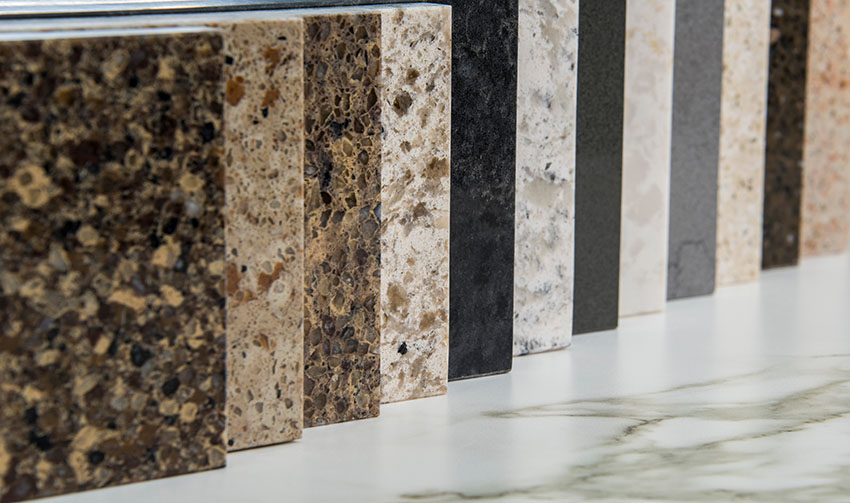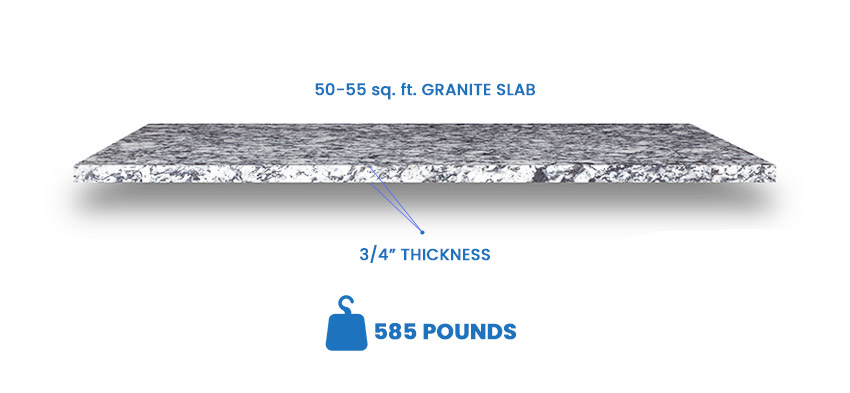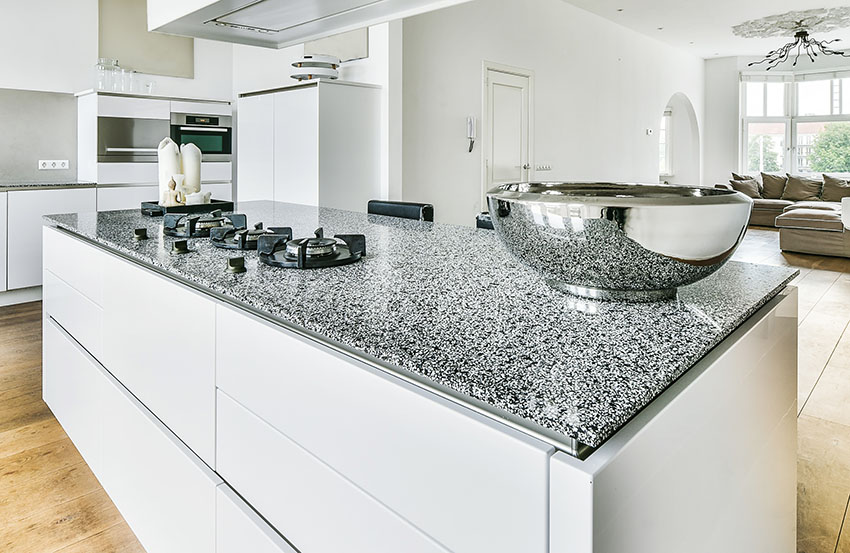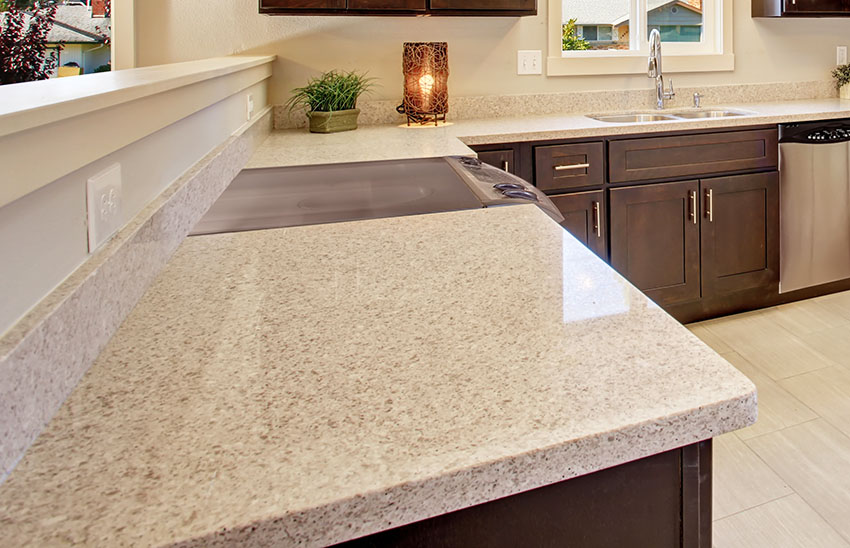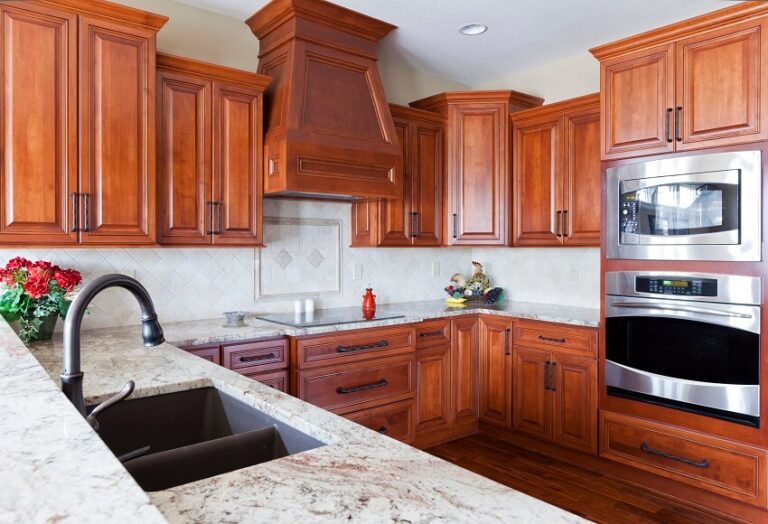How Much Does a Granite Countertop Weigh?
How much does a granite countertop weigh guide, including weight per square foot and per slab and the lightest stone for countertops.
Granite countertops can bring a lot of benefits to your home. Not only are they a beautiful choice but they’re a practical choice as well. They’re affordable, durable, easy to clean, and aren’t likely to show signs of damage from heat, moisture, and stains – all things important when you’re considering something like a kitchen countertop.
That being said, granite is also one of the heavier materials you can use as a countertop and it’s important to account for that. That’s why, in this guide, we’re going to break down everything that you need to know about how much granite countertops weigh.
How Much Does Granite Weigh Per Square Foot?
It’s generally hard to say exactly how much a granite countertop might weigh in a kitchen. After all, kitchen countertops tend to have varying layouts and some homes even feature more countertop space than others. Instead, these stone countertops are measured in a more universal increment: square feet.
A factor that you have to consider is how thick the granite in question is. After all, this adds to how dense and heavy the stone in question will be, adding weight without adding any square footage.
The average granite bathroom countertop is ¾” thick, which gives it a weight per square foot of about 13 pounds.
If the average kitchen countertop is about 30 square feet, then how much does it weigh? Thirty square feet of this 3/4″ thick stone weighs 390 pounds.
The average kitchen countertop is 1″ thick, giving the granite a weight of around 18 pounds per square foot. Thirty square feet of this 1″ thick stone weighs 540 pounds.
However, by increasing the thickness to 1 1/4”, the weight per square foot increases to 18 or 20 pounds. On the higher end of things, you can also opt for a 2” thick granite slab for a weight of up to 30 pounds per square foot.
Another consideration is that types of granites can vary among themselves as they are naturally-forming stones. This can cause some natural variations. For instance, lighter granite color countertops are usually more lightweight than their darker-colored counterparts.
How Much Does a Slab of Granite Weigh?
Before we jump into how much a slab of granite weighs, it’s worth considering exactly what a slab is, especially when considering it as a unit of measurement.
The catch to this question is that slabs can vary in size at times. In other words, it’s hard to say definitively how much granite slabs weigh overall. However, we can take a look at some of the average measurements to get a general idea of the weight of a slab.
A slab is a single, flat piece of granite that, in this case, you use to lay out as your countertop. This means that the size of a slab can vary depending on how much counter space you have or what size slabs you personally need.
The average granite slab is about 9 or 10 feet wide with a length of 5 to 6 feet.
Put another way, you could use a slab this size to cover an area of about 50 to 55 square feet. As we said earlier, you’ll need to account for the thickness of the slab too.
So, to calculate the weight of your slab, you’ll want to multiply the weight per square foot by the number of square feet. For example, a 45-square-foot slab with a thickness of ¾” would weigh roughly 585 pounds.
Which is Heavier: Granite or Quartz Countertops?
Regarding some of the quartz competition for your countertop, another option you might consider are different granites for the countertop. Once again, though, natural stone runs into the challenge of weighing in at some high weights. So, which one weighs more?
If you’re talking about two slabs of the same size, the deciding factor is density. The material with a higher density will be heavier in the same volume.
The densities between granite and quartz are actually very close. Measured in grams per cubic centimeter, quartz measures in at 2.65 g/cc and granite is slightly denser with a density of 2.7 to 2.8 g/cc. This means that while granite slabs may be slightly heavier, the difference wouldn’t likely be incredibly severe. See our comparison guide on quartz vs granite countertops here.
When it comes to comparing granites versus concrete countertops, they are surprisingly quite similar in weight. Granites that are 1″ thick are about 18 to 20 pounds in weight per square foot. For comparison, a 1″ thick square foot piece of concrete weighs in at 18.5 pounds.
Granite is usually denser, and concrete is usually cast in thicker slabs, making the latter heavier in many instances.
What is the Lightest Stone for Countertops?
There are a lot of materials that you can use for your countertops, but there’s a classic beauty and a long list of benefits to stone countertops. If you specifically want a stone countertop for your kitchen, though, where can you turn to for an option with a lower weight?
Actually, granite is one of the lightest options you have when you want a natural stone countertop. As mentioned earlier, quartz is a close competitor as an engineered stone countertop.
For more content related articles, visit our granite countertops guide here.


